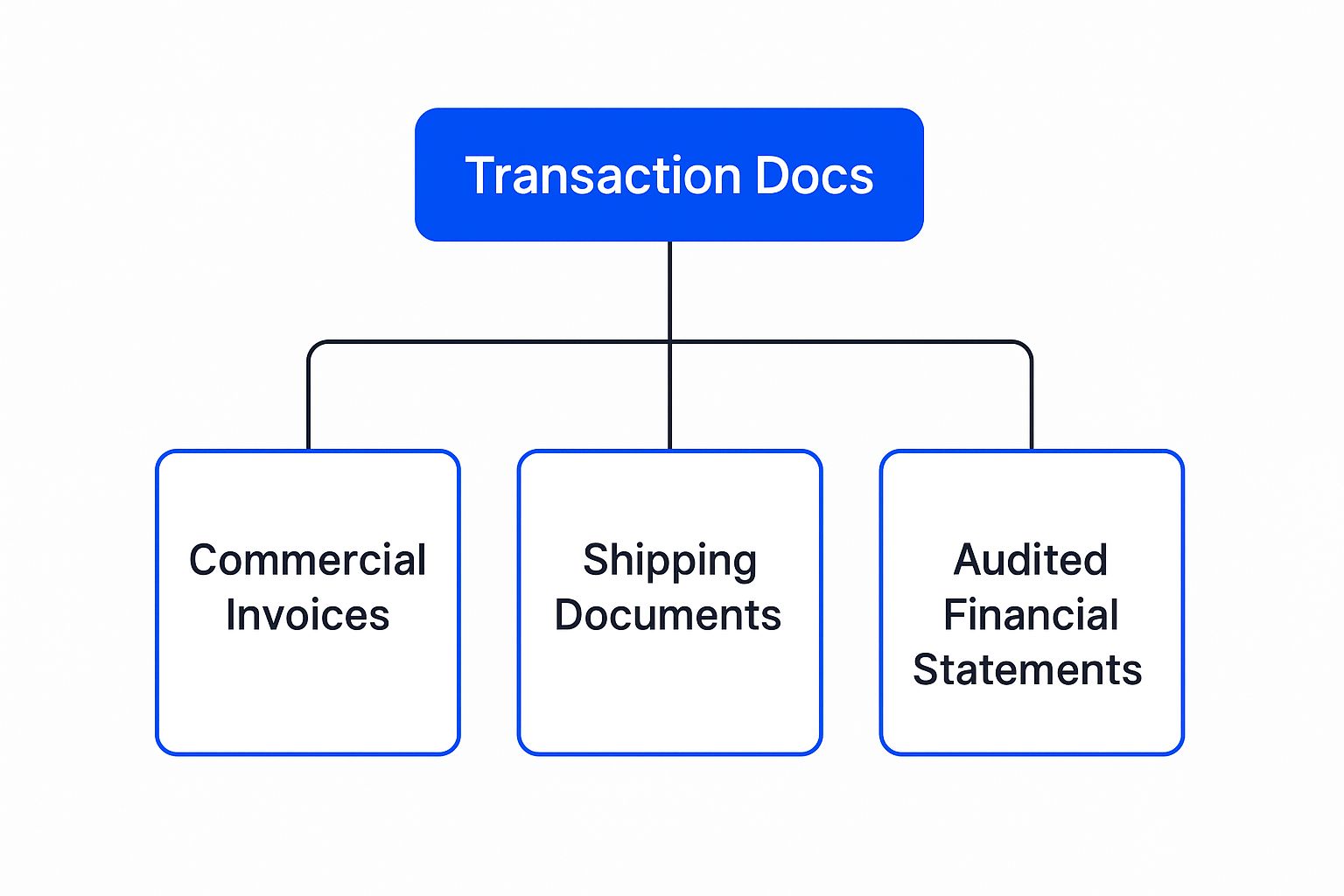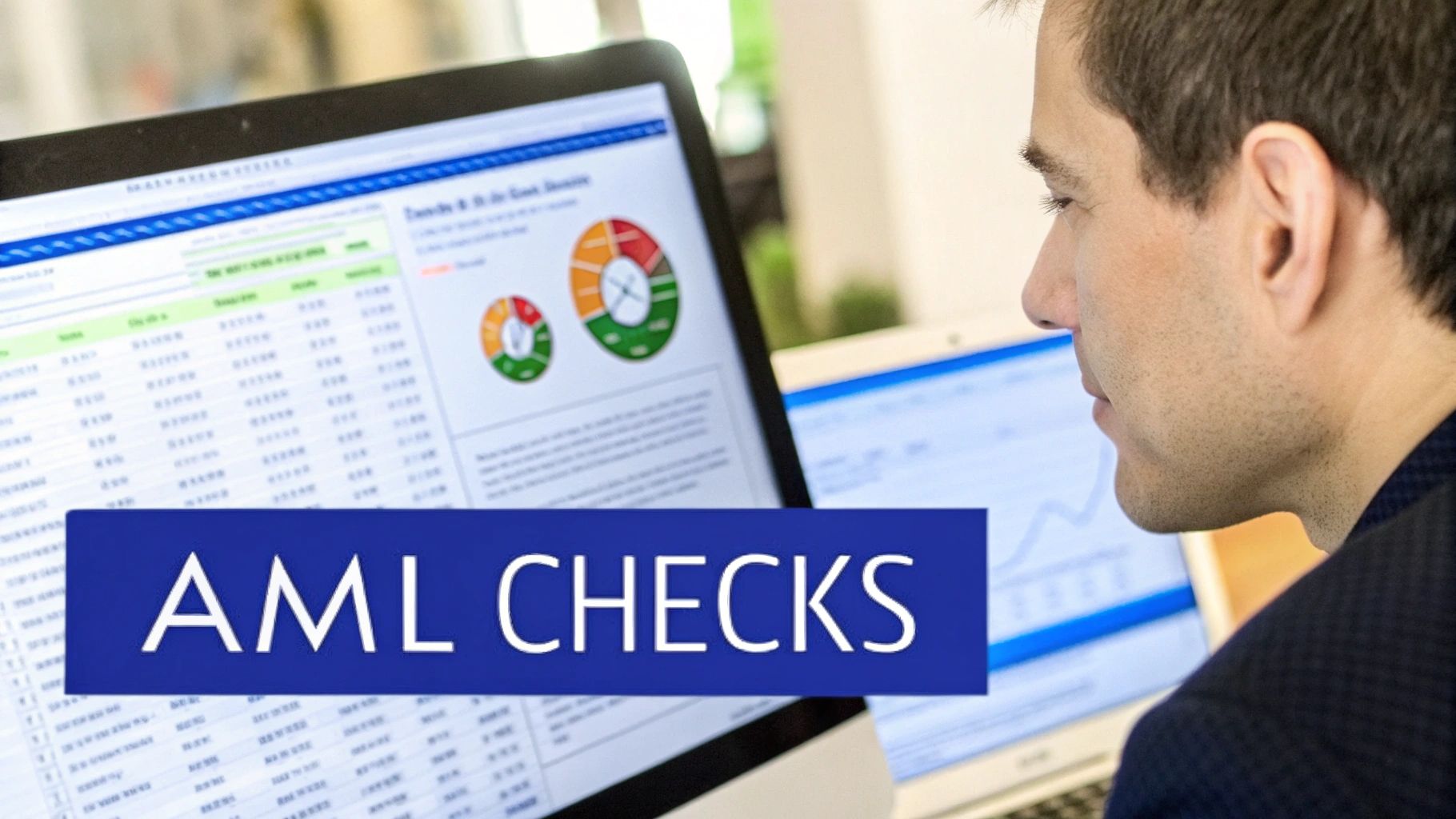It’s the message every entrepreneur dreads: “Your account is under review.” For a small or medium-sized enterprise (SME) relying on Hong Kong for international trade, that notification is more than an inconvenience—it’s a direct threat. Suddenly, funds are locked, suppliers can't be paid, and your entire operation grinds to a halt. We've seen it happen to countless businesses, and the frustration is immense. You're running a legitimate company, so why is your bank treating you like a criminal?
The reality is that Hong Kong banks are under intense regulatory pressure to combat money laundering and financial crime. This has made them incredibly cautious, and their automated systems often flag accounts for reasons that seem trivial. A mismatched invoice number, an outdated address, or a payment from a new country can be enough to trigger a freeze.
The good news? Most account freezes are entirely preventable. They usually stem from simple missteps, not wrongdoing. This guide is your practical, no-jargon checklist from us at Lion Business Co., designed to help you stay compliant, build trust with your bank, and keep your funds flowing. We’ll walk you through exactly what banks are looking for and how to ensure your business never gets caught in the crossfire.
TL;DR: 3 Key Takeaways to Avoid Account Freezes
- Documentation is Your Shield: Your ability to instantly provide clear, matching invoices, contracts, and shipping documents for any transaction is your single best defense. Keep everything organized and accessible.
- Communicate Proactively: Treat your bank manager like a business partner. Inform them before you make large, unusual transactions or expand into new markets. A five-minute email can prevent a five-week freeze.
- Keep Your Profile Updated: Your business changes, but your bank's records don't—unless you tell them. Regularly update your KYC information, business address, and director details to avoid being flagged for outdated information.
Why Do Hong Kong Banks Suddenly Freeze SME Accounts?
Before we dive into the checklist, it’s crucial to understand what’s happening behind the scenes. A bank's compliance department isn’t trying to make your life difficult; they're following strict Anti-Money Laundering (AML) and Know-Your-Customer (KYC) regulations. An account freeze is their default safety mechanism when an activity doesn’t match the profile they have on file for your business.
Here are the most common red flags we see trigger a freeze:
- Mismatched Activities: You told the bank you’re in e-commerce, but suddenly you’re receiving large payments for "consulting services." This discrepancy makes them nervous.
- Transaction Anomaly: Your typical transaction is $10,000, but you suddenly receive a $200,000 payment from a country you’ve never dealt with before. The bank's algorithm will immediately flag this.
- Outdated KYC Information: The bank sends a request for updated director information to your registered address, but you moved six months ago and never told them. The letter is returned, and your account is frozen for non-compliance.
- Sanctions Risk: Your new supplier’s name, or even their shipping vessel, is flagged as having a potential connection to a sanctioned entity. It might be a false positive, but the bank will freeze first and ask questions later.
- Incomplete Paper Trail: The bank asks for proof of a transaction, but you can only provide an invoice. They want to see the corresponding contract, bill of lading, and proof of delivery to verify the entire trade cycle.
Understanding these triggers is the first step. Now, let’s build your defense.
The Pre-Freeze Prevention Checklist for SMEs
Think of this checklist as your proactive guide to maintaining a healthy banking relationship. Whether you’re opening a new account or managing an existing one, these steps will drastically reduce your risk of a freeze.
1. Prepare Your KYC “Refresh” Package in Advance
Banks are required to periodically review your information—a process called a “KYC refresh.” Instead of scrambling when they ask, have a digital folder ready to go at all times.
- What to Prepare:
- Certified True Copies of passports and proof of address (less than 3 months old) for all directors and Ultimate Beneficial Owners (UBOs).
- Updated Business Registration Certificate.
- Proof of Business Address (e.g., a recent utility bill or tenancy agreement).
- An Ownership Chart: A simple diagram showing who owns the company, especially if you have a corporate structure.
- Lion Business Co. Tip: We’ve seen accounts frozen simply because a director’s passport expired and the bank’s records weren’t updated. Set calendar reminders six months before any key document expires to get it renewed and sent to your bank proactively.
2. Maintain an Impeccable Document Trail
This is the most critical point. Every single transaction should be backed by a clear, logical set of documents. Banks need to see the full story of your business activity.
- For Every Transaction, Have This Ready:
- The Agreement: Purchase order or signed contract.
- The Invoice: It must match the parties, amount, and description in the agreement.
- The Proof of Shipment/Service: Bill of lading, airway bill, or signed service completion form.
- The Communication Trail: Key emails with the client or supplier discussing the transaction can provide powerful context.
- Lion Business Co. Tip: Store these documents in a cloud folder named after the transaction (e.g.,
[Invoice Number] - [Client Name]). When the bank asks, you can share the entire folder in minutes, showing you’re organized and transparent.

3. Communicate Like a Partner, Not a Customer
Your relationship manager (RM) can be your greatest ally. Their job is to manage your account, but they can’t defend an activity they don’t understand.
- What to Communicate Proactively:
- “We’re expecting a large payment of [Amount] from [New Client] in [Country] around [Date] for [Reason].”
- “We’re expanding our supplier base to include a new partner in [Country]. You may see outgoing payments to them soon.”
- “Our business model is shifting slightly to include [New Service]. Here is an updated business plan for your records.”
- Lion Business Co. Tip: When a bank sends a formal inquiry (Request for Information), don’t just reply with documents. Call your RM, explain the situation, and ask if they need anything else. This human touch can de-escalate a compliance review before it becomes a freeze. A comprehensive due diligence checklist can help you anticipate the bank’s questions.

4. Implement Basic AML and Sanctions Screening
You don’t need a massive compliance department, but you do need to show the bank you’re taking risk seriously. This is especially true for trading businesses.
- Simple Steps to Take:
- Screen New Clients/Suppliers: Before you do business, run the company and its directors’ names through a free online sanctions list checker. Document the search with a screenshot.
- Question Unusual Requests: If a client asks you to pay an invoice to a third party or send funds to a different country than where they are located, that's a huge red flag. Ask why, and be prepared to refuse if the reason isn’t legitimate.
- Lion Business Co. Tip: Technology is making this easier. AI and automated tools are transforming regulatory compliance, but even manual checks show you're being diligent.

Hong Kong Banking Compliance Checklist: At a Glance
| Compliance Action | Why It Matters | How to Implement |
|---|---|---|
| KYC Refresh Readiness | Prevents freezes from outdated info. | Keep a digital folder with updated director IDs, proof of address, and business registration. |
| Proof of Business Legitimacy | Shows the bank your business is real. | Maintain an active website, corporate email, and a clear business plan. |
| Transaction-Level Proof | Justifies every payment in and out. | For each transaction, link the invoice, contract, and shipping docs together. |
| Address Verification | Ensures you receive bank notices. | Immediately update your registered and correspondence addresses with the bank if you move. |
| Proactive RM Communication | Gives context to unusual activity. | Email your bank manager before large, new, or different transactions occur. |
| Supplier/Buyer Due Diligence | Avoids sanctions-related freezes. | Perform basic background checks on new partners and document your findings. |
SME Banking FAQ: Your Questions Answered
Q1: "My account was frozen for no reason. Why did this happen?"
There is always a reason, even if the bank doesn’t state it clearly. It’s almost certainly due to one of the red flags mentioned above: a transaction didn’t match your business profile, your KYC information is outdated, or a counterparty you dealt with was flagged. The key is to respond calmly and provide the documentation they need to close the loop.
Q2: "Can my account get frozen with an EMI (Electronic Money Institution) like Wise or Airwallex?"
Yes, absolutely. EMIs are also heavily regulated and have their own compliance departments. While they may be more tech-forward, they are still required to monitor for suspicious activity, verify customer information, and comply with AML laws. The same principles of documentation and transparency apply.
Q3: "How often do banks review SME accounts?"
It varies. All accounts are subject to continuous automated monitoring. In addition, you can expect a formal periodic review every 12 to 24 months, where they will request a full KYC refresh. However, a high-risk transaction can trigger an immediate ad-hoc review at any time.
Don't Wait for a Freeze to Get Prepared
Navigating Hong Kong banking doesn’t have to be a source of stress. By treating compliance as an integral part of your business operations—not an afterthought—you transform your relationship with your bank from adversarial to collaborative. They want low-risk, transparent clients, and this checklist is your roadmap to becoming one.
For entrepreneurs just starting out, getting this right from day one is crucial. Our guide on establishing a business in Hong Kong for international entrepreneurs provides the foundational knowledge you need.
Ultimately, your documentation tells the story of your business. Make sure it's a clear, consistent, and compelling one.
If your business relies on stable banking in Hong Kong, our team can audit your account setup and compliance documentation before issues arise. Don't let a preventable problem disrupt your hard work. Book a 20-minute consultation with us.

